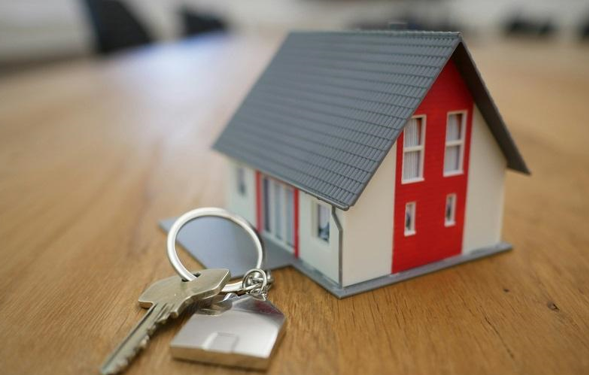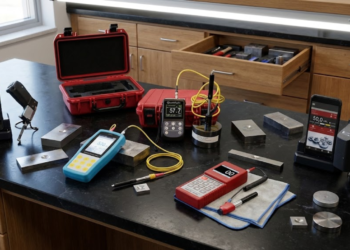Purchasing your first home is an exciting milestone. Yet, it can also feel overwhelming as you navigate budgeting, saving, and understanding mortgages. For many, the path to homeownership is a journey of preparation and decision-making. This guide will equip you with actionable advice to make the process smoother, covering essential steps like setting a budget, saving for a deposit, and managing the hidden costs of buying a home. Additionally, we’ll discuss how short-term financing options, such as payday loans, might fit into your overall financial strategy—if used responsibly.
Budgeting for Your First Home
Creating a realistic budget is the cornerstone of financial planning for first-time homebuyers. Your budget helps you determine what you can afford and ensures you’re not blindsided by unexpected costs.
Understanding Your Financial Position
Before anything else, take stock of your current financial situation. Calculate your income, track your monthly expenses, and assess your savings. This step will give you a clear picture of how much you can set aside each month toward your deposit and other home-buying expenses.
Remember to factor in existing debts. Lenders scrutinize your debt-to-income ratio when assessing mortgage eligibility. If you have outstanding loans or credit card balances, prioritize reducing these liabilities to improve your chances of securing favorable terms.
Building a Budget That Works
Once you understand your financial position, set a realistic savings goal. Break down your target deposit into manageable monthly amounts. Tools like budgeting apps can help you stay on track by visualizing your progress.
As part of this plan, include a contingency fund for unexpected expenses. While payday loans can provide short-term relief in emergencies, they should not replace a robust financial safety net. Use them cautiously and only when absolutely necessary.
Saving for a Deposit
A substantial deposit not only increases your chances of mortgage approval but can also reduce your overall repayment costs. Here’s how to build your deposit efficiently.
Setting Clear Savings Goals
Establishing a clear savings goal starts with understanding typical deposit requirements. In the UK, first-time buyers often aim for a minimum of 5% of the property price. However, aiming for a larger deposit—such as 10% or more—can unlock better mortgage rates.
To reach this target, consider opening a dedicated savings account. Look for options that offer competitive interest rates or government incentives, such as a Lifetime ISA, which can boost your savings with a 25% bonus.
Maximizing Savings Opportunities
Small lifestyle changes can have a big impact on your savings. Cut back on discretionary spending by dining out less or opting for budget-friendly entertainment. Redirect these savings into your deposit fund. If possible, explore side income opportunities to accelerate your progress.
Be mindful of emergencies that might arise. While payday loans can help in dire situations, they come with high-interest rates. Use them sparingly and only when no other options are available.
Navigating Mortgage Options
Choosing the right mortgage is a critical step in your home-buying journey. With so many options available, it’s important to understand what suits your financial situation best.
Fixed vs. Variable Rates
Fixed-rate mortgages offer predictable monthly payments, making them a popular choice for first-time buyers. You’ll know exactly what you’re paying each month, which simplifies budgeting. On the other hand, variable-rate mortgages fluctuate with market interest rates. While they can offer lower initial payments, they carry the risk of increased costs over time.
Consult with a mortgage advisor to explore which option aligns with your long-term financial goals.
Government Assistance Programs
First-time buyers in the UK can benefit from government schemes such as Help to Buy and Shared Ownership. These programs are designed to make homeownership more accessible by reducing deposit requirements or providing financial assistance. Research eligibility criteria to see if these options align with your needs.
Managing Additional Costs
The purchase price of your home is just one piece of the puzzle. Hidden costs can add up quickly, so it’s crucial to plan for these expenses.
Legal and Administrative Fees
Solicitor fees, stamp duty, and valuation costs are unavoidable parts of the buying process. Allocate a portion of your budget to cover these expenses. For properties under £250,000, first-time buyers often benefit from stamp duty exemptions, but it’s always wise to verify your specific circumstances.
Home Maintenance and Upkeep
Once you move in, ongoing maintenance becomes your responsibility. Budget for repairs, furnishings, and utilities to avoid financial strain. Unexpected costs, such as a boiler breakdown, can arise at any time. While payday loans may seem like a quick fix, consider alternative solutions, such as personal loans with lower interest rates, if you’re caught off guard.
Conclusion
Becoming a first-time homebuyer in the UK is an exciting yet complex process. By creating a realistic budget, saving diligently for your deposit, exploring the best mortgage options, and preparing for additional costs, you can navigate the journey with confidence. While short-term solutions like payday loans can provide temporary relief in emergencies, prioritize responsible borrowing to protect your financial health. With careful planning and a proactive approach, your dream of owning a home can become a reality.




![7 Best POS Software in the UK [2026 Edition]](https://todaynews.co.uk/wp-content/uploads/2026/02/7-Best-POS-Software-in-the-UK-2026-Edition-360x180.png)







































































